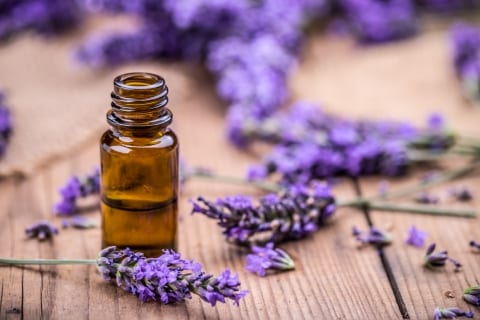Medicine or Malarkey: Can Lavender Oil Help Reduce Your Stress?
November 16, 2017

Whether you’re planning a large get-together, or maybe just dealing with a looming deadline for work or school… you’re likely to have higher-than-normal stress levels. Your blood pressure may be rising with each passing day. Aromatherapy practitioners swear by lavender oil, which is said to help with stress, anxiety and insomnia. But does lavender oil really work, or is it all malarkey? Read on to find out.
What Is Lavender Oil?
Lavender flowers have a characteristic aroma, and they can be distilled to create a distinctive oil. Lavender oil is colorless and very fragrant. It contains a mixture of natural phytochemicals, some of which are purported to have beneficial properties. Long used in perfume, lavender oil has also gained popularity for its aromatherapy applications. Some of the most common claims are that lavender oil can do the following:
- Induce sleep in people suffering from anxiety
- Calm the body, reducing stress and anxiety
- Alleviate aches and pains
- Treat acne
- Reduce symptoms of coughs and other respiratory problems
- Improve blood circulation
Scientific Evidence Supporting the Use of Lavender Oil
Much of the information about lavender oil is anecdotal, meaning that it has been collected informally by people who find the oil helpful. However, there have been several scientific research studies examining the beneficial properties of lavender oil in a more systematic way.
For example, a 2010 study by researchers in Germany examined the anti-anxiety properties of a lavender oil preparation called silexan. They compared silexan to lorazepam (Ativan), a common type of drug prescribed for anxiety. The researchers found that among people with generalized anxiety disorder, lavender oil worked just as well as the drug in alleviating anxiety. Are you surprised? Other studies have shown that lavender oil induces positive moods in stressful situations (such as waiting for dental procedures), reduces depressed moods, and may also help with agitation in patients with dementia. These studies need to be replicated, but preliminary evidence suggests that lavender oil can be helpful in a variety of situations.
The Bottom Line: It Likely Can’t Hurt
So is lavender oil medicine, or is all the hype just malarkey? There is no conclusive way to answer that question, as researchers are continuing to investigate the medicinal properties of lavender oil. However, there is some evidence to suggest that lavender oil can calm anxiety, boost mood and improve sleep.
The bottom line is that lavender oil certainly can’t hurt. It has a very low risk of side effects and is relatively inexpensive to try. There are several recommended methods of using lavender oil. Try placing two or three drops of lavender oil onto your palms. Cup your hands over your face and slowly breathe inward, drawing the lavender oil into your lungs. Alternatively, use an aromatherapy diffuser to create a gentle scent in your room or place a drop of the oil onto your pillow when you sleep.
Remember to take care of yourself, no matter how you manage your stress!
